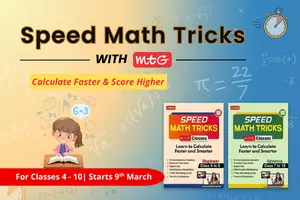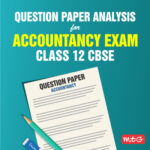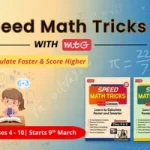
NCERT class 6 mathematics chapter 2 – “Whole Numbers” covers the flow of numbers. When we begin counting from 1, the counting numbers are known as Natural numbers. However, when we begin counting from 0, the counting numbers are known as Whole numbers. The chapter teaches many important concepts related to whole numbers. Students should practice multiple-choice questions (MCQs) to prepare for the objective questions that will be asked in the CBSE exams. We have the CBSE exams, practice multiple-choice questions (MCQs) to prepare for the objective questions. We have offered Class 6 MCQ Questions on “Whole Numbers” apart from offering comprehensive explanations. On many occasions, CBSE highlighted the role of MCQs as they play a major role in understanding the concepts thoroughly.
MCQs are quite different from subjective questions. Therefore, students should practice and understand how to find right answers in the MCQs. To revise the main concepts, students should practice all the MCQs with answers given. This will assist them in familiarizing with the kinds of questions that might appear in the board exams.
Previous – Knowing our Numbers Class 6 MCQS With Answers
Check complete class 6 Maths MCQ – Class 6 Mathematics MCQs with Answers
Topics Covered in “Whole Numbers”
- Natural Numbers
- Predecessor and Successor
- Whole Numbers
- The Number Line
- Addition on the number line
- Subtraction on the number line
- Multiplication on the number line
- Properties of Whole Numbers
- Commutativity of addition and multiplication
- Associativity of addition and multiplication
- Distributivity of multiplication over addition
- Patterns in Whole Numbers
- Patterns Observation
CBSE Class 6 Mathematics Whole Numbers MCQs – PDF Download
Check the complete syllabus – CBSE Class 6 Syllabus For 2024-25 Exams
Answers –
Check the updated Syllabus – CBSE Class 6 Maths Syllabus 2024-25
Summary for NCERT Class 6 Mathematics Chapter 2 – “Whole Numbers”
- The numbers 1, 2, 3,… which we use for counting are known as natural numbers.
- If you add 1 to a natural number, we get its successor. If you subtract 1 from a natural number, you get its predecessor.
- Every natural number has a successor. Every natural number except 1 has a predecessor.
- If we add the number zero to the collection of natural numbers, we get the collection of whole numbers. Thus, the numbers 0, 1, 2, 3,… form the collection of whole numbers.
- Every whole number has a successor. Every whole number except zero has a predecessor.
- All natural numbers are whole numbers, but all whole numbers are not natural numbers.
- We take a line, mark a point on it and label it 0. We then mark out points to the right of 0, at equal intervals. Label them as 1, 2, 3,…. Thus, we have a number line with the whole numbers represented on it. We can easily perform the number operations of addition, subtraction and multiplication on the number line.
- Addition corresponds to moving to the right on the number line, whereas subtraction corresponds to moving to the left. Multiplication corresponds to making jumps of equal distance starting from zero.
- Adding two whole numbers always gives a whole number. Similarly, multiplying two whole numbers always gives a whole number. We say that whole numbers are closed under addition and also under multiplication. However, whole numbers are not closed under subtraction and under division.
- Division by zero is not defined.
- Zero is the identity for addition of whole numbers. The whole number 1 is the identity for multiplication of whole numbers.
- You can add two whole numbers in any order. You can multiply two whole numbers in any order. We say that addition and multiplication are commutative for whole numbers.
- Addition and multiplication, both, are associative for whole numbers.
- Multiplication is distributive over addition for whole numbers.
- Commutativity, associativity and distributivity properties of whole numbers are useful in simplifying calculations and we use them without being aware of them
- Patterns with numbers are not only interesting, but are useful especially for verbal calculations and help us to understand properties of numbers better.
Reference Books for Class 6 Mathematics
- NCERT Textbook + Exemplar Problems Solutions Mathematics
- NCERT at your Fingertips Mathematics
- Foundation Course Mathematics
- Practice-cum-Workbook Mathematics
- Integrated Learning Mathematics





























